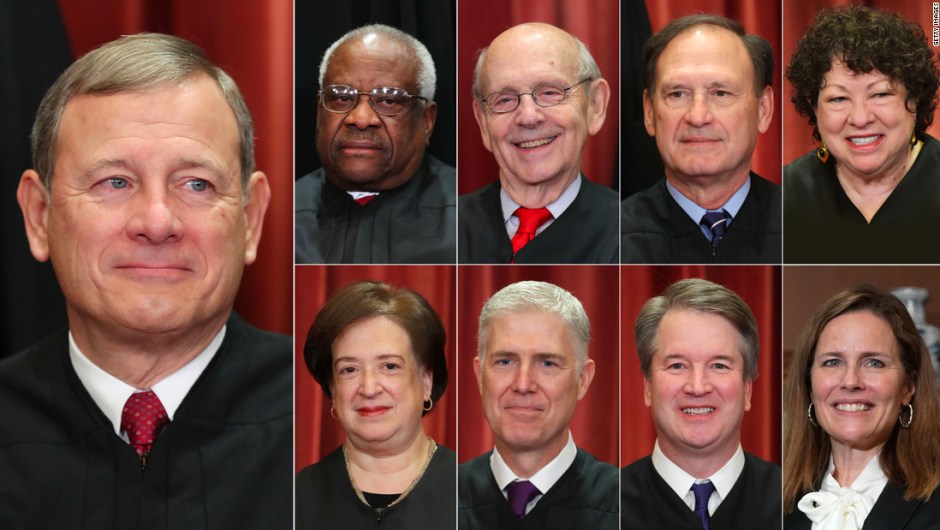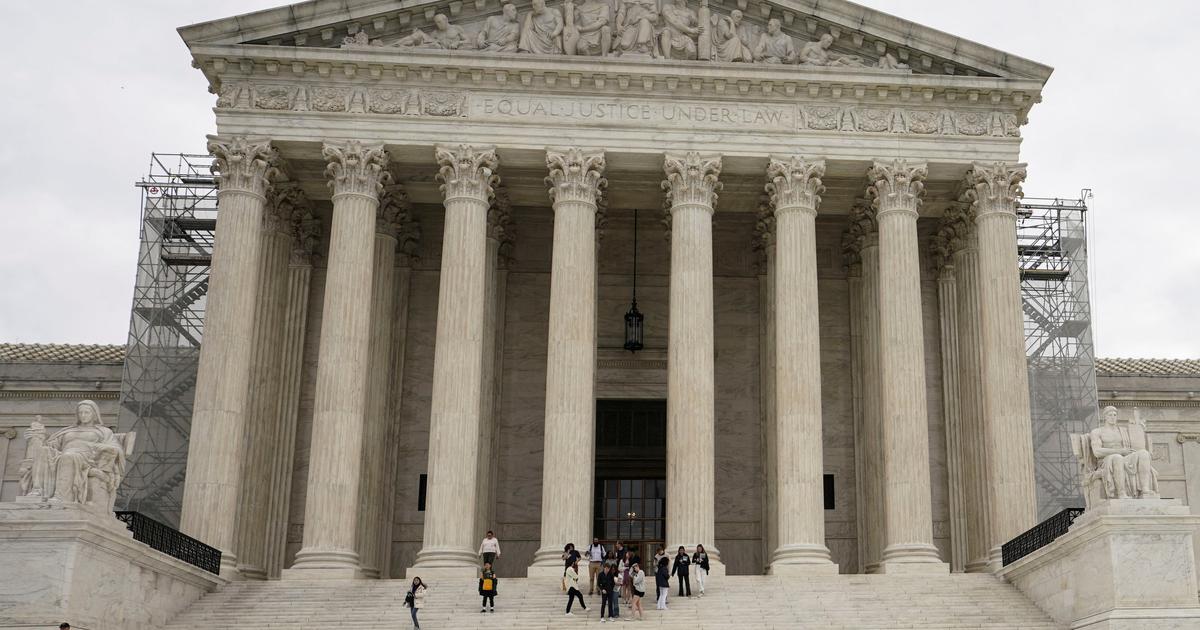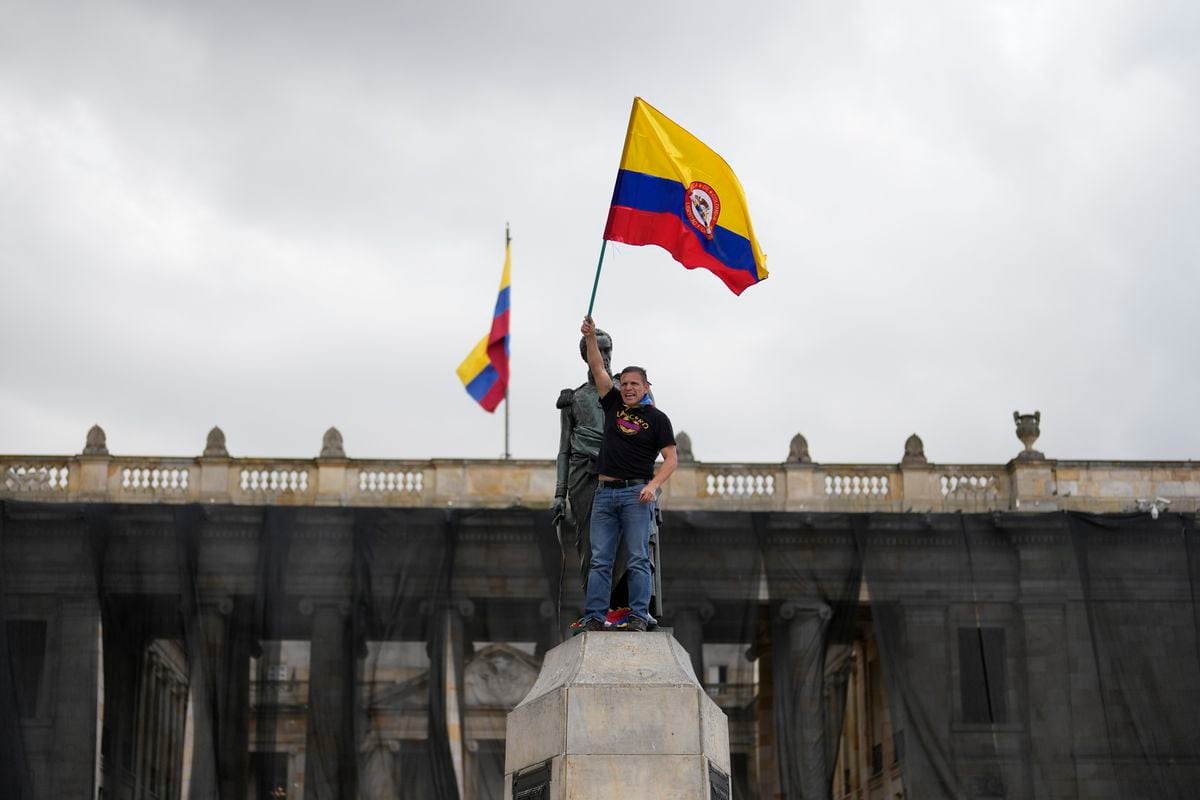(CNN) -
In the last days before the presidential elections, the Supreme Court received requests from parties in battle states seeking last-minute approval to change electoral rules, especially regarding whether mail-in votes can come later. on Election Day and still be counted.
The court, by issuing some of the orders after hours, has navigated a minefield with judges seeking consensus and consistency where possible, hampered without the benefit of a full schedule of briefings.
The situation was complicated by the fact that the emergency requests came before and just after Judge Amy Coney Barrett took office.
At first glance, orders sometimes seemed contradictory.
In North Carolina, ballots can arrive up to nine days after Election Day;
in Pennsylvania, ballots can be up to three days late, for now;
and in Wisconsin, the court said ballots must be ready by election night.
Some themes have come up.
It is now clear that four conservative justices are ready to take a sharp turn to the right when it comes to the power of state legislatures to set the rules for elections.
Additionally, Chief Justice John Roberts served as the casting vote at times, but still worked to preserve the court's institutional legitimacy, and liberals on the bench again expressed their fear that the pandemic could starve voters in some states. .
LOOK: 10 facts about Amy Coney Barrett, new judge of the US Supreme Court
Meanwhile, Barrett, Trump's latest judge, has stayed out of the political race for now.
advertising
Wisconsin: Mail-in ballots must be received before Election Day
A Wisconsin federal district court had allowed ballots to be received up to six days after the election, but a federal appeals court blocked the order.
The higher court upheld that block in a 5-3 ruling on Monday.
Here, Roberts' role was pivotal, and he sided with the other four conservatives (the ruling was issued before Barrett joined the bank).
He explained that the federal district court had "intervened in the middle of the election season" and meddled in state legislative processes, which did not allow for an extension of the mail delivery time.
The court made clear that federal courts should not interfere to change state electoral rules so close to elections.
In overlapping opinions, Justices Neil Gorsuch and Brett Kavanaugh sent strong signals about the power of state legislatures.
"The Constitution establishes that state legislatures, not federal judges, not state judges, not state governors, not other state officials, have the primary responsibility for setting electoral rules," Gorsuch wrote.
That would make a big difference in post-election challenges, particularly if the legislature and the governor are from different parties.
He envisions a more robust role for the Supreme Court when reviewing the lower courts.
Kavanaugh went further.
Echoing Trump, he said states have the right to set Election Day deadlines “to avoid the chaos and suspicions of impropriety that can arise if thousands of absentee votes flow in after Election Day and potentially reverse the election results ”.
Also key is that Kavanaugh referenced a three-judge turnout in Bush v.
Gore of 2000, suggesting that state courts may not have the final say when it comes to electoral rules.
This could be a radical shift to the right in the next few years, as it applies to voting rights.
The three liberals were allowed to emphasize that the courts had intervened because of the pandemic and feared that voters would be disenfranchised during the pandemic.
Pennsylvania: Mail-in ballots can arrive up to three days after Election Day, for now
In Pennsylvania, the circumstances were different and the case went to court twice.
Unlike in Wisconsin, where lower court challenges played out in federal court, here a decision by the Pennsylvania State Supreme Court was central to the challenge.
That state court had allowed mail-in ballots to be counted if received within three days of the election, even without a legible Nov.3 postmark.
Republicans asked the court to intervene to reset the Election Day deadline, but on October 19, the court announced it was at a 4-4 stalemate, meaning the three-day extension could be maintained.
MORE: What does the confirmation of Amy Coney Barrett in the Supreme Court mean for Trump?
Barrett was not yet on the bench and Roberts was the deciding vote, this time on the side of the Liberals.
Roberts sees a difference in the way that state and federal courts should consider an issue.
As you said in the case of Wisconsin: State courts may have the authority to apply their own Constitutions, but federal courts should not get too close to an election.
Republicans took their challenge to court just as Barrett was confirmed in the hope that his vote could make a difference.
This time they asked the judges to expedite the case and hear it before election day.
On Wednesday, the judges declined to grant the request and Barrett, for his part, was not involved in the case.
There was no notable dissension, but Judge Samuel Alito, along with Thomas and Gorsuch, made the reasoning clear.
"I reluctantly conclude that there is simply not enough time at this late date to decide the issue before the elections," Alito wrote.
But Alito pointed out that Pennsylvania agreed to segregate the votes that could be at stake for the election, those that come after Election Day to three days later, and did not exclude a post-election challenge that will likely only occur in more rare circumstances.
"There is a high probability that the decision of the State Supreme Court violates the Federal Constitution," said Alito.
If that line of reasoning prevails, that state courts usurp the authority of state legislatures to set the rules, it could have vast post-election consequences when it comes to vote counting and other disputes.
North Carolina: Mail-in ballots can arrive up to nine days after Election Day
The court rejected two overly complicated challenges filed by the Trump administration, Republicans and state lawmakers, leaving an accommodation in place that allows ballots to arrive up to nine days after Election Day, provided it is postmarked Nov. 3. .
Barrett once again did not participate, and Thomas, Alito, and Gorsuch recorded their dissent.
The state legislature had established a three-day extension for mail-in ballots in June, but then a federal appeals court allowed the nine-day extension that was established by the State Board of Elections amid the pandemic, as part of a legal agreement.
MORE: Republicans are closing the early voting gap in these states
What is unknown is the vote of Roberts and Kavanaugh.
It is possible that the vote was divided into 4 and 4, and Kavanaugh agreed not to write down his vote to highlight the impasse, but when the court issues orders like this, only those judges who wish to publicly point out their dissenters are appointed.
Gorsuch, accompanied by Alito, echoed what he had said in the case of Wisconsin: the power of the state legislature to establish electoral rules.
The Barrett factor
What remains unclear going forward is the Barrett factor.
By saying she wasn't read enough to vote on the cases, Barrett protected herself from criticism that her first votes on the bench went to the heart of politics, especially given her contentious nomination process and her arrival at the bank just before the elections.
It was likely a move endorsed by the Chief Justice, who cares deeply about protecting the institutional concerns of the court.
But he deliberately did not recuse himself from electoral cases in general.
That means your vote could be at stake if the Pennsylvania case returns or, in the extremely rare circumstance that the court must decide the election.
Over time, it will be revealed if she is part of the wing of the court that wants to move things radically to the right when it comes to electoral law.
Amy Coney Barrett United States Supreme Court




/cloudfront-eu-central-1.images.arcpublishing.com/prisa/RHYRDMQQ7BG5JOUSKAXBLKE6YE.jpg)

/cloudfront-eu-central-1.images.arcpublishing.com/prisa/OV2VBR4SENF6HBYT4PL7REJMVU.jpg)




/cloudfront-eu-central-1.images.arcpublishing.com/prisa/KMEYMJKESBAZBE4MRBAM4TGHIQ.jpg)



